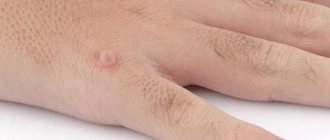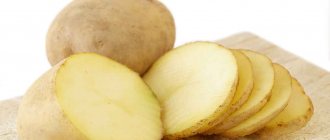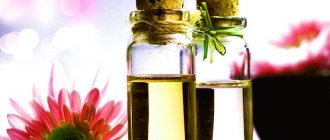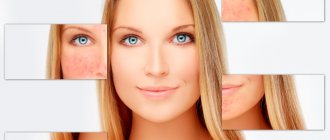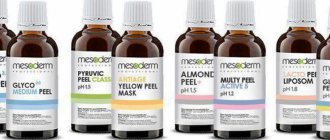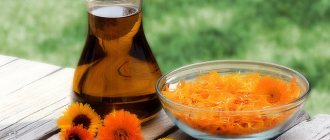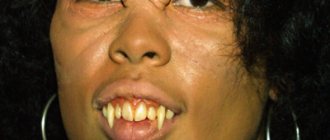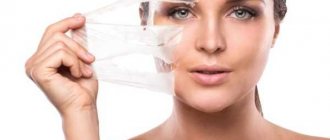Oily skin is caused by excessive sebum production, which is why it is called seborrheic skin. It is prone to inflammation and the appearance of various cosmetic defects (blackheads, etc.). How to care for oily and combination skin? What cosmetics should I use?
Excessively shiny skin with visible blackheads are the main symptoms of oily skin. People with this skin type should pay special attention to their daily skin care and the products they use. To ensure proper care, you need to know what cosmetics to use. Using the right products can be an effective way to solve problems. With a wide range of skin care products to choose from, it's not easy to choose the best one, so it's worth knowing what ingredients to look for in cosmetics to ensure the promised results. However, first you should learn about the symptoms and characteristics of oily skin.
How to identify oily skin?
This type of skin is characterized primarily by visible shine. This is a characteristic feature that distinguishes it from other types. The skin may have an earthy gray-yellow color, an uneven, bumpy texture, and sebaceous glands and blackheads are also visible. Sebum most often appears on the forehead, chin, nose, as well as on the back and chest.
However, oily skin responds quite well to adverse weather conditions, unlike, for example, dry or sensitive skin. Wrinkles, including facial wrinkles, appear later and less clearly.
Causes
Most often, oily skin appears in adolescents aged 12–13 years. This condition is caused by overproduction of the sebaceous glands, which is caused by increased levels of androgenic hormones. Oily skin can be genetically determined. When there are people in the family with acne or comedones, there is a risk that other family members will sooner or later develop these cosmetic problems. Sometimes in women, oily skin is accompanied by menstrual irregularities and/or hirsutism. In this case, it is recommended to consult a doctor and donate blood for hormones. This situation may indicate hormonal imbalances and should be addressed by a specialist.
The described skin type is a transitional state, which means it should change with age. Oily skin turns into combination or dry. Most often, people turn to a cosmetologist with problems of excessive sebum production in adolescence. But in an adult they also occur.
Oily skin care basics
Oily skin care should focus on:
- proper skin cleansing,
- regular exfoliation of the epidermis,
- keeping the skin moisturized.
A very common situation is the fight against shine. It's worth remembering that over-drying oily skin can have the opposite effect, causing it to produce even more oil. Of course, this does not mean that you should give up mattifying cosmetics, but when using such products you need to remember the need to provide your skin with a portion of hydration. Oil-based cosmetics should be avoided as such products can clog pores.
How do I know if I have oily skin type?
In general, even visually this is not difficult to do. Those with oily skin have a constant shine on their face that does not go away after washing; the skin looks thickened (it actually is); in places of the sebaceous glands - on the forehead, wings of the nose, chin - pores are too enlarged; You may notice clogged pores.
If it is visually unclear what skin type you have, do the following: wash your face with foam, do not use cream, and after 2 hours, press a paper napkin to your face. If on a napkin:
- There is no imprint left - the skin is normal.
- Only the T-zone was imprinted - combination skin.
- Oily spots remain all over the face - oily skin type.
HOW IT WORKS?
Let's start with the fact that our skin constantly loses moisture. This natural process is called transepidermal water loss. However, the situation may worsen, for example, due to a violation of the barrier function of the skin, including due to too frequent or improper washing, poor nutrition, poor environment, and exposure to other external or internal factors. Dehydrated skin may look dull and less elastic, change its texture, wrinkles become more noticeable, etc. These changes are also relevant for irreversible natural processes, such as aging, for example. But now we are talking about premature aging. This is something that can be influenced with proper care.
We know from school that the skin consists of several layers. External – horny. Beneath it is the epidermis, and even deeper is the dermis. Blood vessels supply precious life-giving moisture to the dermis, then the incoming water rises to the epidermis, and from there it evaporates. This is where those water-binding, occlusive and softening components can come in handy.
But keep in mind that in many cases, moisturizer alone may not be enough to eliminate dehydration. For example, occlusive and water-binding components require moisture. Otherwise, they simply will have nothing to “bind”, “attract” and “lock”. For example, one hyaluronic acid molecule can attract 700-1000 water molecules. Where can I get them from? For these purposes, as well as for targeted solutions to certain skin problems, a great variety of tonics, essences, serums, lotions, etc. have been invented. Before you start dreaming about how great it would be if there was one miracle cream that would solve all your problems at once, we have to disappoint you: unfortunately, there is no such remedy. Otherwise, how would manufacturers and marketers make money? Therefore, since you have already entered the struggle for beauty, you will have to fork out for at least one or two more products. If you are faced with a tough question of finances and need to choose “just one thing,” then we recommend that you first get a good moisturizing tonic without alcohol or harmful additives. One of its tasks is to prepare the skin for the application of other skincare products, including moisturizer. Gradually, as needed, you can add other products to your care system.
And drink more clean water. We know that perhaps only the lazy don’t talk about the body’s water balance and the notorious 1.5-2 liters of water per day. Believe me, this is important.
Why does the skin dry out?
Even oily skin that loses moisture becomes tight and flaky, and therefore needs to be moisturized. In addition, discomfort causes tightness and a gray complexion. The main reasons for moisture loss:
- the presence of skin diseases that dry out the cells of the epidermis or internal organs;
- bad weather (low temperature, sun, wind, dust);
- low and therefore insufficient humidity;
- taking antibiotics for a long time;
- unhealthy/irregular diet and drinking patterns, smoking;
- excessive sweating;
- excessive consumption of alcoholic beverages;
age-related changes.
IF YOU HAVE DRY SKIN
Dry skin can boast the absence of enlarged pores. This is great - one less problem. But wrinkles on such skin are clearly visible, and this is no longer so pleasant. No problem. The sebaceous glands do not produce enough sebum, and our task is to compensate for it. In the composition of a moisturizer, we advise you to pay attention to the presence of ceramides (a type of lipids or fats), hyaluronic acid, and glycerin. If you suffer from skin irritation and rashes, a product with centella extract may be right for you.
Oily skin care mistakes
Those with oily skin want to get rid of the problem and do all sorts of skincare treatments in hopes of a more matte finish, without thinking about whether they need to moisturize. However, the point is that excessive and incorrect manipulation will make things worse.
Frequent peeling
Many people mistakenly believe that frequent peeling will solve the problem. But in the end, the situation worsens: the skin becomes even more oily, and numerous acne appears.
The point is that you are washing away the natural protective layer that prevents germs from penetrating the dermis. The more bacteria that attack your skin, the more often breakouts occur.
Experts note that oily skin is not a reason to resort to frequent traumatic procedures. It is not advisable to clean with rough scrubs or gels. It is better to use milk with a cleansing effect or foam for washing, which will delicately remove impurities without disturbing the pH of the skin.
Peeling is not prohibited. But you should do it no more than once or twice a week. And after the procedure, be sure to use a cream with a moisturizing effect, which will help restore the natural lipid layer.
Love for excess sun - solarium
In many cases, a solarium is generally useless and even harmful. Just like a lot of sun without proper protection. Sun or UV rays dry out only the top layer of the skin, which provokes excessive production of fat in the lower layers of the epidermis. The effect is that the skin is dried out, signs of aging appear faster, and the oily sheen, having disappeared, returns again.
Drying the skin with cosmetics
Alcohol-based cosmetics, unprofessional skincare products, abuse of foundation and powders - all this dries out your skin. Alcohol-containing products, which are often used to dry out acne, provoke new problems:
- irritation;
- peeling;
- redness, etc.
Therefore, cosmetics that contain at least 10% alcohol should be used extremely carefully.
An abundance of dense toning products clogs the skin. As a result, the sebaceous glands become clogged and inflamed, and acne and blackheads appear in their place.
To avoid getting into such a situation, you need to choose the right cosmetics, pay special attention to cleansing the skin and not use products every day, but give your skin time to rest.
The desire here and now to get rid of acne
Acne occurs when the sebaceous gland becomes clogged. An inflammatory process occurs. And if you try to squeeze out acne, the irritation will only intensify, and a scar will remain on the injured area.
It is not recommended to remove acne on your own. It is better to do this with the help of a cosmetologist who will select the most suitable method and cosmetic products.
Preventing excess skin shine in summer
Cosmetics for the summer should be selected that are not greasy, with a lightweight texture. Creams should not clog pores, but, on the contrary, allow the skin to breathe. Use matting products correctly; these can be special wipes or products that will get rid of excess shine.
Recommendations for caring for oily skin:
- you should not go to bed with makeup on your face;
- cleanse skin morning and night;
- use scrubs, masks and natural infusions;
- drink more water;
- remove fatty foods, smoked foods, fried foods from the diet, diversifying the menu with fruits and vegetables.
Skin pores must be protected from dust and any contaminants. And as protection, it is better to use a moisturizer with SPF or loose mineral powder that does not weigh down the skin. Special tonics that do not contain alcohol will also help remove oily shine.
Why and how to moisturize oily skin
It is possible to restore and maintain the water-fat balance of the skin with the help of properly selected skin care products.
For example, the Diego Dalla Palma RVB SKINLAB brand has a line of peptide skincare products designed specifically for oily skin. It is based on the ingredients Bakuchiol ACN and probiotics of lactic acid bacteria. They help normalize the functioning of sebaceous secretions, replenish the lack of moisture, remove inflammation, even out microrelief, narrow pores and make the skin more uniform, brighter, and more vibrant.
Washing
Wash 2 times a day with foams, gels, mousses with a small content of exfoliating components. Give preference to healing compositions - products with aloe, green tea.
For example, the Detoxifying Cleansing Mousse effectively removes not only excess sebum, but also decorative cosmetics, keeping the skin's pH level normal. A couple of seconds - and you will feel freshness and comfort, and your complexion will improve. For deeper cleansing, the Deep Cleansing Gel is suitable, which effectively dissolves sebaceous plugs, removes toxins, moisturizes the skin and removes oily shine.
Toning
After washing, use a refreshing toner. It is responsible for smoothing the skin texture, removing residual cleanser, visually narrowing pores and preparing the skin for the application of fluid.
Hydration
The texture of cosmetics for oily skin should be light. Low-fat gels, cream gels, and fluids are suitable. It’s great if the day cream contains moisturizing components (for example, hyaluronic acid), as well as sebum-regulating components such as minerals and clay. It is also recommended to moisturize the skin with thermal water.
For daily use, you can choose a product like SPF 15 Sebum-Balancing Cream. It is quickly absorbed, relieves irritation, stimulates the processes of restoration and normalization of the sebaceous glands. As a result, the skin looks calm, smooth and radiant.
Keep in mind that aging skin requires completely different care. Matifying Anti Age Cream contains components that serve to prevent age-related changes, as well as powder that absorbs excess sebum and mattifies the skin.
How to moisturize oily skin with masks
Detox compositions containing charcoal and clay are recommended, which help draw out toxins, prevent inflammation, and reduce the intensity of sebum production. 1-2 times a week is enough for such masks. You can also make homemade formulations to moisturize oily skin:
Clay can be different. White has a slight tightening and brightening effect, green and black relieve inflammation, dry out acne, and remove oily shine.
It is good if the composition contains zinc and magnesium. These microelements normalize sebum production and eliminate inflammation. Tea tree essential oil effectively fights shine.
For example, in the PHYTOMER line there is a mask for oily and combination skin, which tightens pores, evens out the complexion, and also moisturizes. Therefore, it contains hazelnut and sunflower oils.
Whereas JULIETTE ARMAND offers masks that not only effectively cleanse oily skin, but also help get rid of acne. It is based on the Normaseb biotechnological complex based on amino acids and proteins, which normalizes the functioning of the sebaceous glands.
WHAT ARE THERE MOISTURIZING COMPONENTS AND WHAT IS THEIR ROLE?
Water-binding agents must attract moisture and retain it. One of the brightest representatives of such components is the well-known hyaluronic acid. And also glycerin, fruit acids, honey, etc.
Occlusive agents are designed to reduce moisture loss. Simply put, they create a thin film on the surface of the skin, physically “locking” the liquid inside the tissue. These are, for example, petroleum jelly, lanolinic acid, mineral oils, cholesterol, beeswax, squalene.
The third type is softening components. They seem to fill the gaps between the skin scales, smoothing the texture of the skin, and also have a positive effect on its barrier functions.
IF YOU HAVE COMBINATION SKIN
Ideally, you are recommended to use several categories of products at once - different for each area. For example, in the T-zone, which is often very oily, you should use products for oily skin, and in dry areas - for dry skin. Let's look at things realistically, you say. That's a lot of money to spend on all this stuff! Right. This is "ideally". Therefore, the author of these lines, who once faced the same dilemma, chose the “lesser evil”: which areas were the most problematic, and focused on such means. This is not entirely correct, but when finance sings romances, it is better than nothing. There are, of course, products “for all skin types,” but they are not suitable for everyone. You might get lucky.
IF YOU HAVE SENSITIVE SKIN
Do you think that your oily or dry skin is the most problematic and capricious of all types? Those with sensitive skin will probably object to you. Sensitive skin fully lives up to its name - it quickly reacts to “undesirable” and “unacceptable” skin care products, which can be accompanied by redness, itching, burning, and pain. Therefore, when choosing a moisturizer, we recommend following the principle “the simpler the better.” You may need to avoid artificial flavors, alpha hydroxy acids, and beta hydroxy acids (BHAs). Or use them with great caution. The fewer ingredients in the composition, the better.
IF YOU HAVE NORMAL SKIN
Well, what can we say? What a score. But you already know that, right? People with normal skin are rare, and you are one of them. You most likely do not have any specific problems that require a special approach. If there are, they are probably caused by improper self-care. When choosing a moisturizer, we recommend focusing on a lighter consistency. A cream that is too thick may not suit you, which can cause breakouts. However, everything is individual. In the composition, pay attention to hyaluronic acid, niacinamide, antioxidants.

